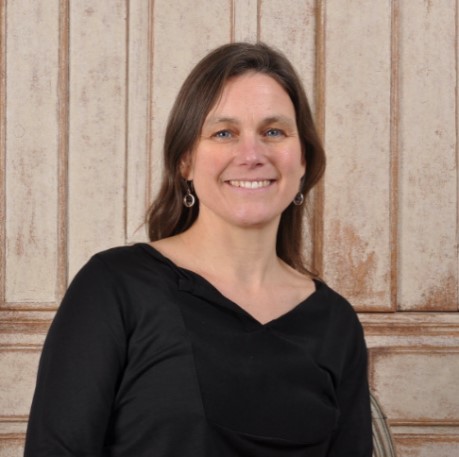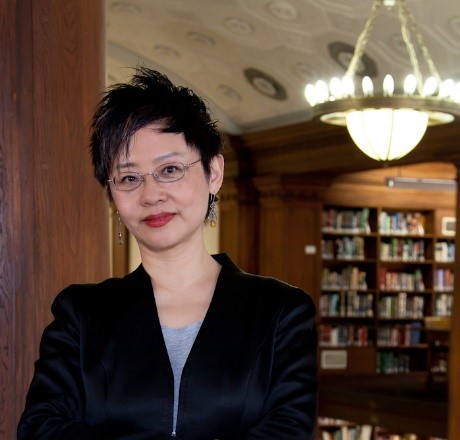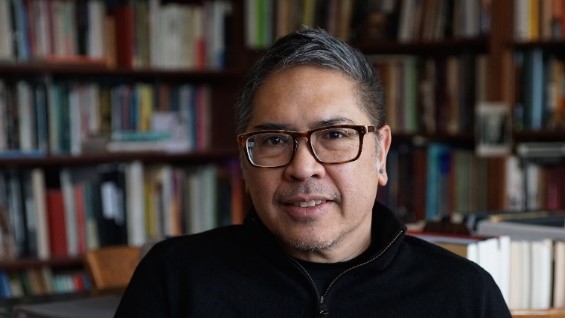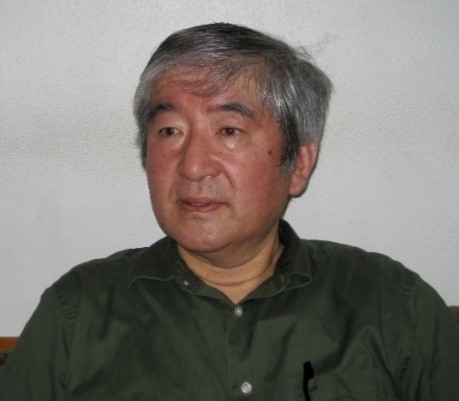in alphabetical order
TRANSLATION INTO CHINESE UNDER PROGRESS BY THE TRADUXIO-IATIS TEAM

Abstract:
My talk investigates the political potential of “feminist translation” to facilitate cross-border mobilities of feminist discourses, enable local feminist interventions into heteropatriarchal regimes of truth, connect feminist activists across differences, and help forge transnational solidarities of resistance against violence against women. In order to explore this potential of translation, I draw on a case study that analyzes my Turkish feminist translation of Hanne Blank’s Virgin (2007/2008) – a popular western history book presenting a demedicalizing account of virginities and demystifying their “man-made” history, particularly in the context of Christianity – and the receptions of the translated book among a group of feminist readers in Turkey. Comparing the US and Turkey, two unevenly positioned cultures with different configurations of virginity and feminist legacies, the first part of my talk will discuss how this western book was mobilized to unsettle Turkey’s virginity codes and what kinds of transgressive effects it generated among feminist readers. Studying the particularities of Virgin’s cross-border journey provides crucial political lessons on how to build transnational connectivities in a world organized around mutually sustaining oppositionalities and hierarchical border formations. In the second part of my talk, I will hypothetically reverse the geopolitical direction of Virgin’s journey and ask, what if the textual travel being discussed were vice versa, from the east to the west? Would a similar book telling the history of “eastern virginities” – with its analytical focus on, for instance, the manifestations of virginity in Islamic con/texts – stand a chance if it migrated from the east to the west? How would feminist readers situated in the US react to such a book? Asking these speculative questions is vital not only to provide some cautionary tales about transnational feminist politics, but also to reveal the political work that lies ahead of us in regard to creating a truly egalitarian global economy of translation, reception, and resistance.
About the Speaker:
Emek Ergun is an Assistant Professor at the Women’s and Gender Studies Program and the Department of Global Studies at the University of North Carolina at Charlotte. Her area of expertise is at the junction of transnational feminisms, cultural globalization, and feminist translation studies. More specifically, her research focuses on the role of translation (as in writing and reading translation) in dis/connecting feminist activists, discourses, and movements across geopolitical borders. Dr. Ergun recently co-edited a collection of essays called Feminist Translation Studies: Transnational and Local Perspectives, to be published by Routledge in 2017. She is currently working on her first manuscript expanding on her doctoral dissertation, where she explores the ways in which the debiologizing virginity theories and knowledges of Hanne Blank’s Virgin: The Untouched History (2007), a US-American book on the history of western virginities, traveled from the U.S. to Turkey through her politically engaged translation (2008).

Abstract:
This presentation departs from the migration situation in contemporary Sweden and Europe. An increasing influx of refugees and migrants in the last few years and a parallel augment in nationalistic attitude that is hostile to migration have led to a situation of authoritarian and austere migration policies in many European countries. Sweden, which received more than 160 000 refugees during the autumn of 2015 have gone from one of EU’s most generous asylum policies to a European minimum standard.
The aim of this presentation is to analyse and discuss the impact of community interpreting within this context of changing migration policies. The presentation departs from different encounters between public service officials in the receiving country, non-Swedish speaking refugees or migrants, and interpreters. The public service officials have the power over and responsibility for the outcome of the encounter. The community interpreter though is responsible for interpreting languages but also other kinds of communication between the participating actors who represent different knowledge producing groups. In each encounter, the issue of trust and transparency is crucial. Hence, community interpreting can be described as a tool for the receiving society to ensure legal security and democratic practices on one hand and a risk for structural discrimination and exclusion on the other.
The presentation starts out with an introduction of the context, the Swedish welfare state and contemporary migration in Europe with special focus on the situation of community interpreting services. After that a discussion follows about the concept of “cultural encounters” – why it needs to be revisited in this context and how it will form the theoretical framework of the analysis of interpreted encounters between state officials and migrants or refugees. Finally, empirical examples of such encounters are presented to explore the need of community interpreting in times of global migration marked by ambivalences between austerity and generosity.
About the Speaker:
Kristina Gustafsson is Associate Professor in Ethnology and Senior Lecturer in Social Work at the Department of Social Work, Linnaeus University, Sweden. Since the mid-1990s she has been teaching and conducting research about issues of migration, integration and diversity with a special focus on culture, languages and fundamental values. In two joint research projects at the Department of Cultural Studies, Lund University, The interpreter: a cultural broker, and Behind closed doors: the significance of interpreting for legal security and integration with emphasis on the reception of separated minors and children, she has investigated community interpreters’ experiences of interpreted encounters and the impact of interpreting for legal security and integration. Currently (2016-2018), she is leading a project about the reception of refugees and migrants. She has published widely in a variety of venues including Interpreting and The Critical Link 6 (Benjamins, 2013).

Abstract:
The study of translation has long been preoccupied with the promise or withdrawal of meanings between languages. This philological approach derives from an unproven hypothesis about the whereabouts of meaning in language and futile speculations about what is translatable and what is untranslatable. Indeed, how do meanings get inaugurated, made or unmade between languages? In her keynote lecture, Professor Lydia H. Liu will reconceptualize translation as a discursive event that inaugurates other events. Focusing on the geopolitics of translation, she will examine its temporality and spatiality, its socioeconomic conditioning, as well as the emergence of competing universals in recent history.
About the Speaker:
Lydia H. Liu is a theorist of media and translation, a scholar of comparative literature, and a bilingual writer in Chinese and English. She is the Wun Tsun Tam Professor in the Humanities and the Director of the Institute for Comparative Literature and Society at Columbia University. Her publications include The Freudian Robot: Digital Media and the Future of the Unconscious (2010), The Clash of Empires: The Invention of China in Modern World Making (2004), Translingual Practice: Literature, National Culture, and Translated Modernity (1995) and more recently, The Birth of Chinese Feminism: Essential Texts in Transnational Theory (2013), a book she coedited and co-translated with Rebecca Karl and Dorothy Ko. Professor Liu is the founding Director of the Tsinghua-Columbia Center for Translingual and Transcultural Studies at Tsinghua University in Beijing. She is the author of The Nesbit Code, a mock detective fiction in Chinese published by Oxford University Press (Hong Kong) in 2013.
 Keynote Speech Title:
Keynote Speech Title:Abstract:
English seems to be everywhere in the world today, as omnipresent as money. Just as the US dollar has been the Latin, as it were, of world currency, so English has been the lingua franca of a ceaselessly globalizing market economy. This is as true in the vastly diverse linguistic landscapes of Southeast Asia as it is in the irreducibly plural cultures of the United States. How did the hegemony of English come about? What are the specific histories and political imperatives that have installed English at the head of a global linguistic hierarchy while situating vernacular languages below it? What effects does this linguistic hierarchy have in the reproduction of social relations within such nations as the Philippines, Singapore, Thailand and the United States? And what are the limits of translating English into money, especially when confronted with everyday creolized speech in such forms as slang and literature?
About the Speaker:
Vicente L. Rafael is the Giovanni and Ann Costigan Endowed Professor of History at the University of Washington, Seattle. He is the author of several works on the cultural and political history of the colonial and post-colonial Philippines as well as topics ranging from the comparative histories of translation, empire and the politics of language and representation, and sovereignty and criminality in the making of the nation-state. His books include, Contracting Colonialism, White Love and Other Events in Filipino History, The Promise of the Foreign and most recently, Motherless Tongues: The Insurgency of Language Amid Wars of Translation, all published by Duke University Press.
 Keynote Speech Title:
Keynote Speech Title:Abstract:
Can we start with the presumption that translation has a history or histories? In order for us to be able to discuss the history of translation, it must be postulated that we can tell one form of translation from another or, at the very least, how the form of translation is transformed through the passage of time; that translation is a certain regime or a set procedure that can be described as distinct or conceptually differentiated from other regimes or procedures.
In this presentation, I will discuss an institutionalization of translation, which I have elsewhere called ‘the modern regime of translation,’ that is particular to the modern international world. Translation can be performed in a variety of ways, but today, especially in the disciplines of translation studies, this form of translation has generally been accepted as a universal form. Consequently little or no attempt has been made to historicize the form of translation, according to which it is understood as a transfer of a message from one organic systematicity of codes to another, from one national or ethnic language to another. In other words, I want to articulate the specific form of translation to historical dynamic, thanks to which such basic components of the modern world as national language was invented.
About the Speaker:
Naoki Sakai is Goldwin Smith Professor of Asian Studies at Cornell University. He has published in the fields of comparative literature, intellectual history, translation studies, the studies of racism and nationalism, and the histories of textuality. His publications include: Translation and Subjectivity (University of Minnesota Press, 1997); Voices of the Past (Cornell University Press, 1991); The Stillbirth of the Japanese as a Language and as an Ethnos (Shinyô-sha, 1995); The End of Pax Americana and the Nationalism of Hikikomori (Iwanami Shoten, forthcoming). He has edited a number of volumes including Politics of Translation, special issue of Translation, co-edited with Sandro Mezzadra (2014); Translation, Biopolitics, Colonial Difference, Vol. 4, and Traces – A Multilingual Series of Cultural Theory and Translation, co-edited with Jon Solomon (Hong Kong University Press, 2006). Naoki Sakai served as the founding editor for the project of TRACES, a multilingual series in five languages – Korean, Chinese, English, Spanish and Japanese.